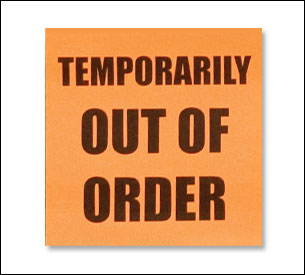“No sweets before supper!” mom says as she is finishing the icing on the cake. Then she runs her finger along the bowl and wipes out a delicious scoop of chocolate icing and, without thinking about it, pops it into her mouth.
Or Dad comes home from work, throws his jacket over a chair, drops his case on the couch, grabs the sports section of the news, leaves the rest of the paper on the counter, plops down on his favorite throne, I mean chair, turns on the TV, kicks off his shoes, and complains about clutter.
Of course, these areas are not nearly as serious as when we demand the truth but gossip on the phone, teach sharing but act stingy, yell at the kids about yelling at each other, or demand kindness while we act like an ogre (not Shrek).
It is always a temptation for the person in power to use his power to excuse himself from the “rules” of the common man. It is true in politics, governments, sports, Hollywood, and on and on. Sadly, it is also true in families, because it is true in human nature.
It was true of the Pharisees, for in Matthew 23 Jesus spoke to them this message, “The teachers of the law and the Pharisees sit in Moses' seat. So you must obey them and do everything they tell you. But do not do what they do, for they do not practice what they preach.” And in verse 25 he said, "Woe to you, teachers of the law and Pharisees, you hypocrites! You clean the outside of the cup and dish, but inside they are full of greed and self-indulgence.”
So this is not a new problem; it is as old as man. And it is easy to fall into this trap without knowing it.
The Pharisees were demanding but not leading. Jesus comes along and says, “Follow me.” This is the standard when the mature lead the immature—when parents lead children: “Follow us.” St. Paul addressed his children in the faith and said, “Follow me as I follow Christ.”
Another name for this standard is integrity. Your words and your actions match. There is no substitute for it.
We are often blind to the fact that we have set up a double standard. If we ask the Holy Spirit to show us these areas, He will.
As our kids grow up, they notice. They see whether or not we are practicing what we preach. If we want our kids to hear what we say, we must say it with our words and our actions.





